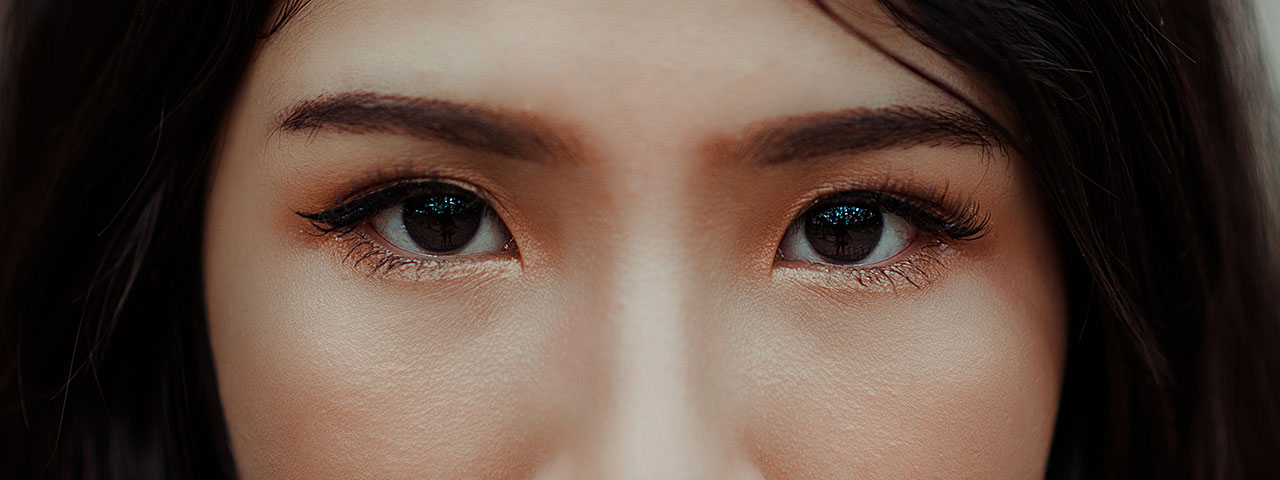
What Is Lagophthalmos?
Lagophthalmos refers to the incomplete closure of the eyelids and can produce symptoms similar to dry eye syndrome, such as dry, itchy, watery eyes. In extreme cases, it can cause corneal ulcers.
There are several types of lagophthalmos, ranging from mild to severe. Common symptoms include:
- Increased tearing
- Dryness
- Irritation
- The sensation that something is stuck in the eye
- Blurred vision
- Eye pain, especially in the morning
A visit with Dr. Charles Shidlofsky can determine if lagophthalmos is causing or contributing to your dry eye symptoms.
Types of Lagophthalmos
 Blink Lagophthalmos
Blink Lagophthalmos
When the eyelids don’t fully close during a blink, this is called “blink lagophthalmos.” Blinking keeps the eyes lubricated by spreading the tear film evenly along the eyes’ surface. An incomplete blink can lead to dry spots on the eye and other uncomfortable dry eye symptoms. Colliding eyelashes or tasks that require a high level of focus (such as working on a computer) can contribute to blink lagophthalmos.
Nocturnal Lagophthalmos
Nocturnal lagophthalmos occurs during sleep, so people with this condition may be unaware they have it. One common cause of this type of lagophthalmos is a decrease in fatty tissue behind the eyeball. Less cushioning causes the eye to sink further into the socket, making it more difficult for the lids to completely close. The fatty tissue can deteriorate for several reasons, including the presence of an autoimmune disease.
Paralytic Lagophthalmos
Paralytic lagophthalmos results from a paralyzed cranial nerve, thus preventing the eyelids from complete closure. Paralysis of the seventh cranial nerve can be caused by Bell’s palsy, tumors, or trauma.
Iatrogenic lagophthalmos
This is when the eyes can’t fully close due to medical treatment. Medical procedures that can cause lagophthalmos include Botox injections and sutures near the eye.
How Your Eye Doctor Can Help
There are several ways to treat lagophthalmos, and sometimes surgery may be necessary. It’s best to first visit Dr. Charles Shidlofsky to pinpoint the cause of your symptoms and try the least invasive and safest treatments before resorting to surgery. If left untreated, lagophthalmos can result in corneal damage.
If you’re experiencing dry eye symptoms of any kind, an eye exam at The Dry Eye Center at Neuro-Vision Associates of North Texas can help determine the underlying condition so that a tailor-made treatment plan can provide long-lasting relief. Dry eye relief extends far beyond the options available at your local drugstore. The friendly staff at The Dry Eye Center at Neuro-Vision Associates of North Texas make it their mission to provide the highest quality care for their patients. Get the relief you seek — book your appointment today.
Our practice serves patients from Plano, North Dallas, Fort Worth, and DFW Metroplex, Texas and surrounding communities.















